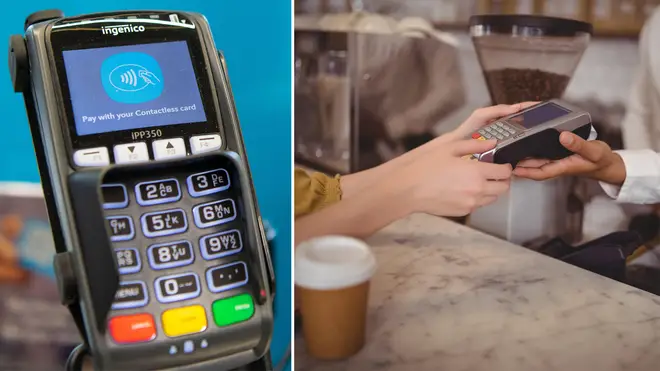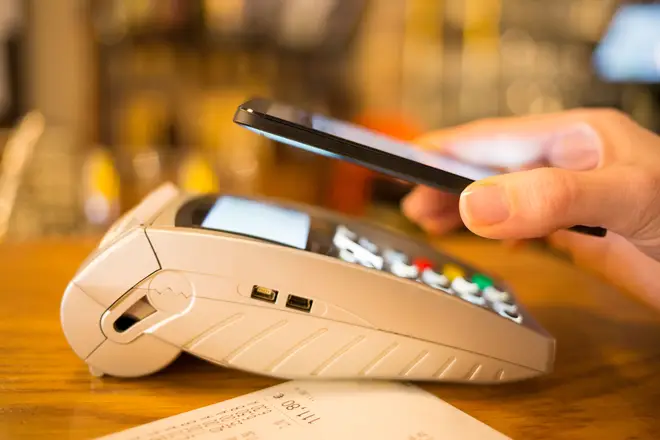On Air Now
Rob Howard and Kelly Brook 4pm - 7pm
12 April 2022, 10:07 | Updated: 12 April 2022, 10:14

A microchip implant allows you to make contactless payments without the use of your card or phone.
With the use of cash slowly declining, now a brand new way of paying has been developed.
Some people are getting rid of their contactless cards and phone apps in favour of a microchip inserted into their skin.
British-Polish company Walletmor has become the first business to offer NFC (near-field communication) payment chips, claiming to have already sold more than 500.
The chip itself, which weighs less than a gram and is about the size of a grain of rice, is made up of a tiny microchip and an antenna.

This is then encased in a biopolymer, a naturally sourced material which is similar to plastic.
Comprising near-field communication technology, the chips use the same contactless payment system in smartphones.
They can be used anywhere that accepts contactless payments and Walletmor claims they are medically safe, with regulatory approval.
Walletmor CEO Wojtek Paprota told the BBC: "The implant can be used to pay for a drink on the beach in Rio, a coffee in New York, a haircut in Paris - or at your local grocery store."
Currently, Walletmor chips don't require a power source and store information locally.

Wojtek added: "Chip implants contain the same kind of technology that people use on a daily basis. From key fobs to unlock doors, public transit cards like the London Oyster card, or bank cards with contactless payment function."
The first microchip was implanted into a human body back in 1998, but the technology has recently been made available to the publuc.
This comes after a survey conducted last year of over 4,000 people across the UK and EU found that 51% would consider a biometric chip similar to this.
However, there are some worries they could be used as a surveillance tool in future.
Professor Nada Kakabadse told the BBC: "There is a dark side to the technology that has a potential for abuse. To those with no love of individual freedom, it opens up seductive new vistas for control, manipulation and oppression.
"And who owns the data? Who has access to the data? And, is it ethical to chip people like we do pets?"